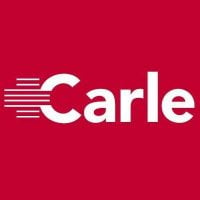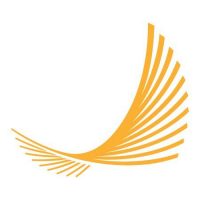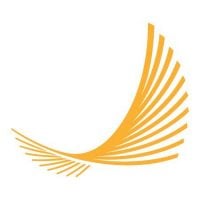Carle Addiction Recovery Center
Drug Rehab Center in Urbana, Illinois
The Carle Addiction Recovery Center in Urbana, IL offers personalized care and a comprehensive range of addiction recovery services including aftercare support, detoxification assistance, dual-diagnosis therapy, intervention levels of care and various types of rehab programs to help individuals achieve long-term sobriety with the highest level of respect and compassion.
About This Illinois Facility
Carle Addiction Recovery Center, located in Urbana, Illinois, is a comprehensive rehabilitation center that offers a range of evidence-based treatment services and programming to those struggling with substance abuse and addiction. The facility prides itself on its commitment to individualized care and evidence-based treatment approaches, all delivered in a safe, comfortable and nurturing environment. At Carle, clients have access to an experienced team of clinicians, nurses, and counselors who provide an integrated approach to treatment that is tailored to each individual’s unique needs and goals.
Carle Addiction Recovery Center provides an array of programming and support services, including individual and group counseling, medication-assisted treatment, relapse prevention, family therapy, and holistic wellness modalities. The team at Carle helps clients develop the skills and strategies needed to manage their recovery on a day-to-day basis, from building healthy coping mechanisms to identifying triggers and avoiding potential relapse. Additionally, Carle follows an abstinence-based model of care, meaning that clients are expected to remain abstinent throughout the duration of their treatment.
Carle Addiction Recovery Center holds many accreditations and licenses, including an accreditation from the Joint Commission, the gold standard in health care quality and safety. The facility has also received the Outstanding Achievement Awards from the Healthcare Quality Association on Accreditation and the Excellence in Supportive Services Award from The Joint Commission. Carle Addiction Recovery Center also has an onsite pharmacy and a nationally recognized pilot program that uses artificial intelligence to analyze patient data to help clinicians better treat their clients.
Genders
Ages
Modality
Additional
Conditions and Issues Treated
Substance abuse typically leads to addiction, which requires specialized treatment programs at Carle Addiction Recovery Center to address. Many people benefit from inpatient drug rehabilitation, which includes inpatient acute care and residential rehabilitation. Other levels of care include intensive outpatient therapy, individual counseling, and support groups. Family therapy is also an essential part of treatment for substance abuse.
A combination of treatments is often needed to treat drug abuse issues effectively. In the case of drug abuse, there is no easy answer or one-size-fits-all cure.
Opioid addiction treatment helps people addicted to opioids in Illinois curb their drug use. The selection of a treatment setting depends on the severity of the addiction. Mild cases are usually treated in outpatient facilities; severe cases need hospitalization or treatment in a residential facility. Doctors use medicines along with counseling and behavioral therapies to treat the addiction. The treatment includes medication, counseling and therapy. It can also include group counseling, individual counseling and family counseling.
People with dual diagnosis have coexisting addiction and a mental disorder. 9.2 million US adults had a co-occurring disorder in 2018, so not just limited to Illinois residents. Best treatment combines medication, psychotherapy (talk therapy), support group, and inpatient rehabilitation. Sometimes, complementary therapies – yoga, massage, and acupuncture – may also be used.
Levels of Care Offered at Carle Addiction Recovery Center
This center offers a variety of custom treatment tailored to individual recovery. Currently available are Aftercare Support, Detox, Drug Rehab, Dual-Diagnosis, Intensive Outpatient, Intervention, Outpatient, with additional therapies available as listed below.
Detox is the stage of recovery where the drugs or alcohol are entirely removed from your body. There are two different ways to detox, with medications and without. For many drugs and alcohol, the acute phase of detox can be completed in a number of days.
Carle Addiction Recovery Center offers an Intensive Outpatient Program is for those who need intensive care but prefer to spend the majority of their time in the comfort of their own home. The rehabilitation services differ in length and intensity. They are customized to meet the needs of the patient.
Outpatient treatment plans cover diagnosis, detoxification, management, and counseling. They are a popular option for those who have graduated from inpatient facilities. Services in Illinois include medication-assisted treatment (MAT) and individual and group therapy.
Not everyone dealing with addiction is prepared to engage in a recovery program. Carle Addiction Recovery Center‘s Intervention Programs can be beneficial for these individuals. The individual’s friends and family will call and set up an intervention in or near Urbana, IL, and at which a specialist will come and lead the discussion.
After treatment, addiction treatment can be frightening for newly sober people. Aftercare support provided by Carle Addiction Recovery Center is designed to give resources and help on a continued basis. It can involve finding housing in and around Illinois, setting up 12-step meeting groups, continued medical monitoring, and counseling.
Therapies & Programs
Family therapy is a set of therapeutic approaches that assumes that the entire family is a system. It utilizes the strengths and resources of the family to help the patient refrain from resorting to substance abuse. The impact of substance abuse is not just on the patient but on the entire family. Family therapy ensures that the patient gets adequate support from the family members after the treatment making the recovery process sustainable
- Family therapy guides all the members of the family to help the patient.
- It helps to repair relationships and improve communication between family members.
- It helps to keep the patient engaged and motivated throughout the treatment.
Group therapy is an important tool in recovery. Finding a peer group in Urbana, IL and others who relate to your situation is a fundamental tool for recovery at Carle Addiction Recovery Center. Addiction tends to lead to isolation and feelings of uniqueness. The accountability and friendship that is found in group therapy can be more effective than any single other treatment approach. This is generally introduced early in recovery and is recommended as a lifetime treatment habit.
Trauma therapy is a way of addressing trauma while in a safe situation in order to heal. This may involve Carle Addiction Recovery Center managing individual or group counseling or both. Other forms of therapy have been proven to assist in healing past traumas.
A type of cognitive-behavioral therapy is Dialectical Behavioral Therapy. It is intended for those who are vulnerable to self-harm and suicidal thoughts. Carle Addiction Recovery Center aims to help patients understand the connection between their feelings, emotions, and behaviors and provide them with the tools to make a difference in Urbana, IL. For those whose addictions and habits originate from severe mental health problems, it is beneficial.
Negative feelings are common in substance abuse disorders. If not recognized, they can cause co-occurring disorders. CBT involves strategies that help to change the thinking and behavioral pattern. It can be administered as a monotherapy as well as a part of combination therapy.
Rational Emotive Behavioral Therapy (REBT) is a variation of Cognitive Behavioral Therapy (CBT) that helps people understand how maladaptive, negative, and habitual thoughts and feelings lead to bad life choices. REBT is based on the idea that people operate under many irrational but habitual patterns of thought that fuel harmful practices.
EMDR stands for Eye Movement Desensitization and Reprocessing (EMDR). It is a treatment method to work through traumatic memories to find resolution. This process utilized at Carle Addiction Recovery Center can reframe damaging experiences into something less frightening and reduces the control those memories have over you. It may involve eye movement, hand tapping or other small movements. It may assist in a more rapid healing of these events than other methods.
Rehabilitation is not just limited to bringing an individual out of addiction and achieving sobriety. It is considered complete only when an individual starts leading a normal and balanced life. Life skill therapy focuses on the various skills that help an individual to lead a normal life. Patients often do not take care of themselves, struggle professionally, and withdraw from social interaction due to addiction’s physical and emotional disturbances.
Life skills therapy helps people in Illinois improve various personal, professional, and social skills such as cooking healthy meals, maintaining proper hygiene, budgeting, decision-making, time management, regulation of emotions, and effectively resolving interpersonal conflicts.
The first three steps depend on the patient, so they are more specific and situational. The succeeding four steps center on practical issues brought on by substance abuse. Steps 8 and 9 deal with the social and emotional repercussions of addiction, encouraging patients to make amends to people they have wronged. These are followed by two steps revolving around the further exploration and reinforcement of Steps 1 to 9.
The last step requires an individual to extend a helping hand to people who are still in the early stages of their recovery.
Payment Options Accepted
For specific insurance or payment methods please contact us.
Is your insurance accepted?
Ask an expert, call (888) 674-0062
Additional Details
Specifics, location, and helpful extra information.
Urbana, Illinois 61801 Phone Number(217) 383-6039 Meta DetailsUpdated November 25, 2023
Staff Verified
Patient Reviews
There are no reviews yet. Be the first one to write one.
Urbana, Illinois Addiction Information
In 2016, more than 2,350 Illinoisans died from drug overdoses. More than 5,500 deaths annually occur in Illinois due to the abuse of alcohol and other drugs. 7.17% of Illinois residents reported using illicit drugs in the past month (2018). Substance abuse costs the state approximately $3.5 billion every year.
The most commonly abused drugs in Urbana and Champaign County include heroin, cocaine, marijuana, and methamphetamine. According to the National Institute on Drug Abuse, over 23 million people in the United States are addicted to drugs or alcohol. If you or someone you know is struggling with drug abuse, please seek help.
Treatment in Nearby Cities
- Rock Island, IL (157.0 mi.)
- Canton, IL (72.1 mi.)
- Dixon, IL (136.3 mi.)
- Lake Bluff, IL (150.8 mi.)
- Flora, IL (101.2 mi.)
Centers near Carle Addiction Recovery Center
The facility name, logo and brand are the property and registered trademarks of Carle Addiction Recovery Center, and are being used for identification and informational purposes only. Use of these names, logos and brands shall not imply endorsement. RehabNow.org is not affiliated with or sponsored by Carle Addiction Recovery Center.





